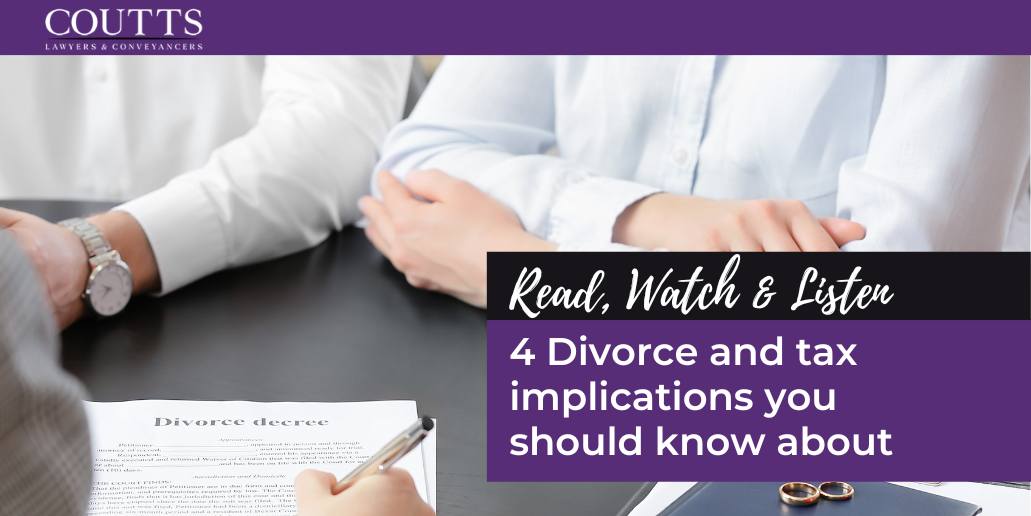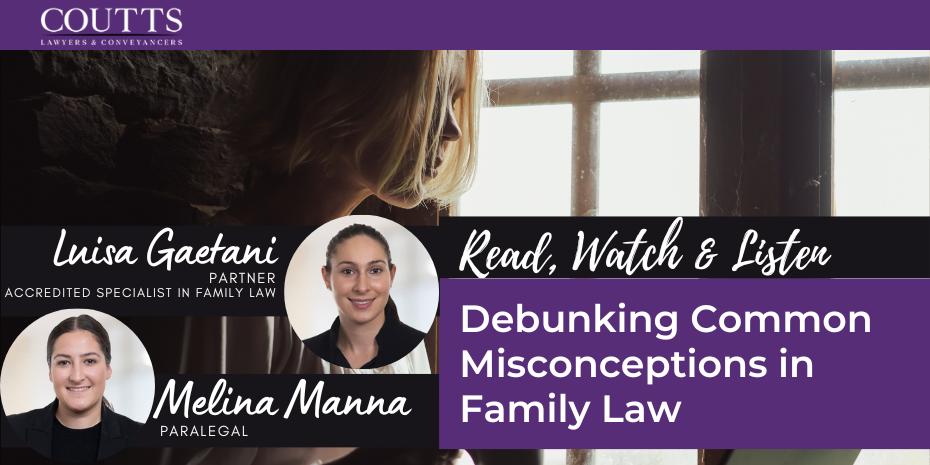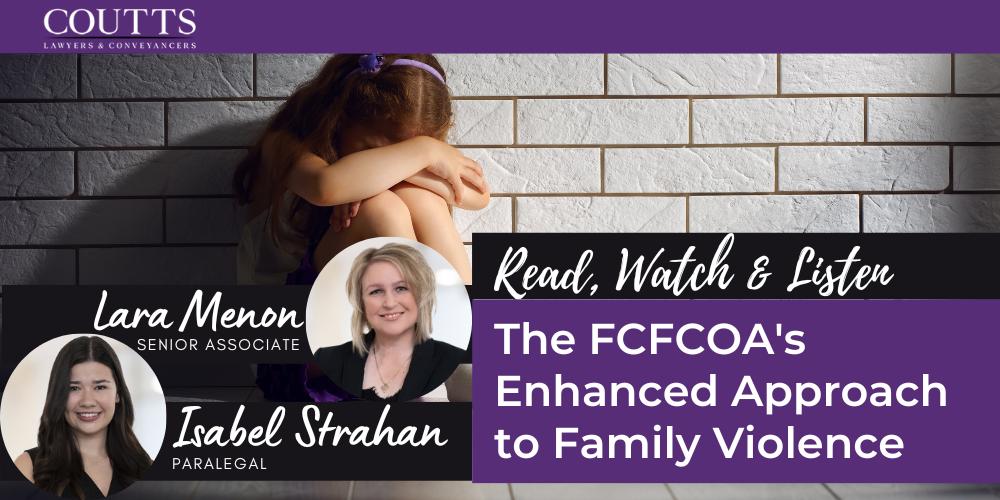Going through a divorce, separation and break up is a very emotional and complicated process. The situation can get even more complicated when there is property involved. If there are houses, superannuation, shares, investments and businesses involved, you will eventually need to make decisions about who is going to keep what property. When making these decisions, you should always consult with a lawyer to know what your legal options are. But, it’s also important to consult with an accountant or financial planner so that you properly understand what your financial options are, and if there are any tax implications that you may face.
Stamp duty implications
In cases where one person is going to keep a house and buy the other out, it is important that you know that in NSW, stamp duty is payable on that buy out.
It is also important that you know that the stamp duty that will be owed is not the amount that you are paying the other person out, but on the value of the share that you are buying.
For example, Jack and Emily* have a home in Camden together, and its worth about $700,000.00. They own the home as joint tenants, which (very) basically means that they own the home equally. Emily pays Jack $100,000.00 in exchange for her keeping the home.
Emily will pay stamp duty on the share that she is buying, which is Jacks half of the house, which is $350,000.00. She will not pay stamp duty on the $100,000.00 that she pays to Jack.
In saying all of this, there is a way to get around having to pay stamp duty. Exemptions to stamp duty are created if there is a Family Law Order or another kind of agreement under the Family Law Act. So, if Jack and Emily enter into a formal property settlement, then Emily will not have to pay stamp duty. To find out more about how to get a formal property settlement, click here.
Capital gains tax implications
Capital gains tax is the situation where you earn income or make a capital gain from an investment, including property. That capital gain is taxable. When going through a separation, the most common time that capital gains tax becomes an issue is when there is more than one property that is being sold or bought out by one of the parties. When this happens, it is best to seek advice from an accountant about exactly what capital gains implications you may face, and what you can do to minimise any implications.
Superannuation tax implications
If you are going through a divorce or separation and dividing up a property that is between you, you may divide up superannuation as well. For those who make additional contributions to their superannuation, or who are receiving a large sum into their superannuation fund as a result of Family Law agreement, there may be tax implications that you need to consider. Your superannuation fund will be able to provide you with some general information about this, but it is best to consult an accountant or financial planner about the full extent of any implications before making a decision.
Corporate tax
It is not uncommon for couples to run businesses together. It’s also not uncommon for those businesses to be incorporated, so that the couple become directors of a company. When going through a separation, there is usually some kind of agreement about who will retain the company, and any assets that may be held by the company. It’s common to pay one director out in these circumstances.
Corporate tax is a very complex area and it is best to talk to an accountant or corporate tax specialist in these circumstances to find out what, if any, corporate tax implications you could face when trying to split up a business.
If you need the advice to navigate your legal options when going through a divorce, separation, or break up, be sure to contact us. If you need advice on divorce and tax implications, you can chat with us, but we also highly recommend speaking to an accountant or a financial planner.
*Jack and Emily may be real people, but I certainly don’t know them. These names have been used for the purpose of the example only.
What Should You Do Now?
At Coutts Lawyers & Conveyancers, we have a team of family lawyers who can assist you in Campbelltown, Sydney, Narellan, Camden, Tahmoor, Newcastle, Wollongong & Parramatta locations in Australia. Call at 1300 268 887 for a FREE Initial Consultation for up to 1 hour.



